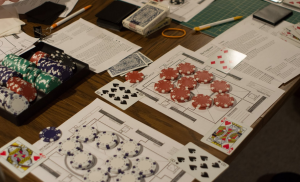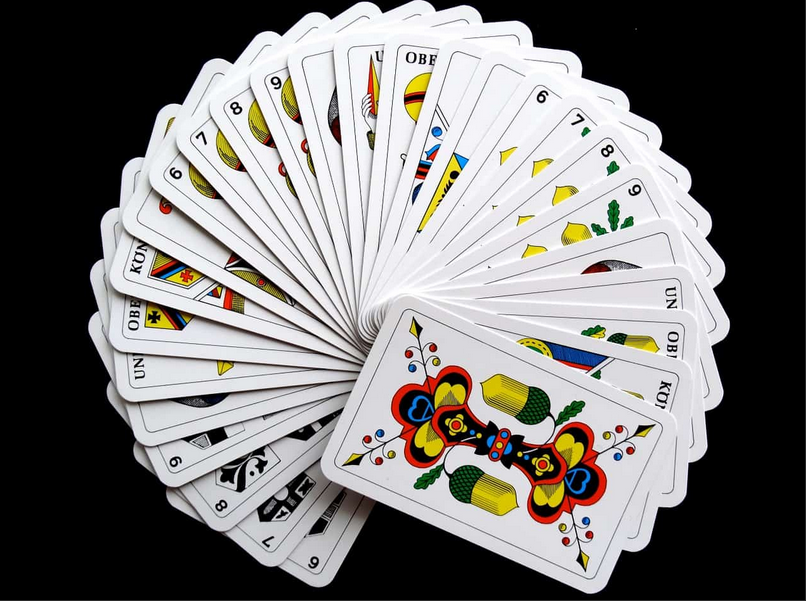Card games have been a beloved pastime for centuries, captivating players with their blend of skill, luck, and strategy. From classic games like Poker and Blackjack to modern favorites like Hearthstone and Magic: The Gathering, understanding effective card game strategies is essential for success. In this article, we will explore key elements of card game strategy, including hand management, reading opponents, bluffing, deck building, and adapting to various game formats. Whether you’re a casual player looking to improve or an aspiring card game champion, these tips will help you dominate the table.

Hand Management – Making the Most of Your Cards
One of the fundamental aspects of card game strategy is hand management. Efficiently using the cards in your hand and knowing when to play or hold back can significantly impact your chances of winning. Evaluate the strength of your hand and assess the potential moves you can make. Prioritize long-term strategy over short-term gains, as holding onto powerful cards for crucial moments can give you a significant advantage.
Reading Opponents – The Art of Observation
Successful card players can read their opponents’ moves and anticipate their next actions. Pay close attention to your opponents’ behaviors, betting patterns, and facial expressions (in the case of in-person games). Spotting patterns can help you deduce their strategies and tailor your own moves accordingly.
Bluffing – A Powerful Weapon in Your Arsenal
Bluffing is a classic card game tactic that involves deceiving opponents into believing you have a stronger or weaker hand than you actually do. Mastering the art of bluffing can give you an edge over your opponents, but it requires careful execution and a keen understanding of your opponents’ psychology.
Deck Building – Constructing a Winning Arsenal
In games with customizable decks, such as collectible card games (CCGs) and deck-building games, constructing a well-balanced and synergistic deck is critical. Consider the game’s mechanics, card interactions, and win conditions while building your deck. Regularly assess and fine-tune your deck based on your gameplay experiences and the current metagame.
Adapting to Different Game Formats
Card games often come with various formats, such as tournament play, casual matches, and special events. Each format may require a different approach and strategy. Be adaptable and learn to adjust your playstyle to the specific rules and conditions of the game format you are participating in.
Probability and Risk Management
Understanding probabilities and risk management is crucial in card games that involve chance and randomness. Calculate the odds of drawing specific cards or landing specific combinations. Make informed decisions based on the likelihood of success and consider the potential consequences of each move.
Mind Games and Psychology – Understanding the Meta
The metagame, or “meta,” refers to the prevailing strategies and popular card choices within the gaming community. Understanding the meta allows you to predict opponents’ moves, counter popular strategies, and gain a competitive advantage. Stay updated with the latest trends and developments in the card game community to stay ahead of the competition.
Practice and Study – Refining Your Skills
Improving at card games requires practice and study. Regularly engage in matches, whether online or with friends, to refine your skills and gain experience. Additionally, study strategy guides, watch gameplay videos, and learn from seasoned players to enhance your understanding of the game.
Sportsmanship and Learning from Losses
Winning is satisfying, but losing is an inevitable part of any card game journey. Embrace losses as opportunities for growth and learning. Analyze your mistakes and identify areas where you can improve. Maintaining a humble and sportsmanlike approach will garner respect from fellow players and keep you motivated to keep progressing.
Conclusion
Mastering card game strategies requires a combination of skill, observation, adaptability, and calculated decision-making. Hand management, reading opponents, bluffing, deck building, and understanding probability are all essential elements of a successful player’s toolkit. Embrace the challenges and joys of card games, whether you play casually with friends or compete in high-stakes tournaments. As you refine your strategies and elevate your gameplay, you’ll find that card games offer an ever-evolving and enriching experience that continues to captivate players around the world.

